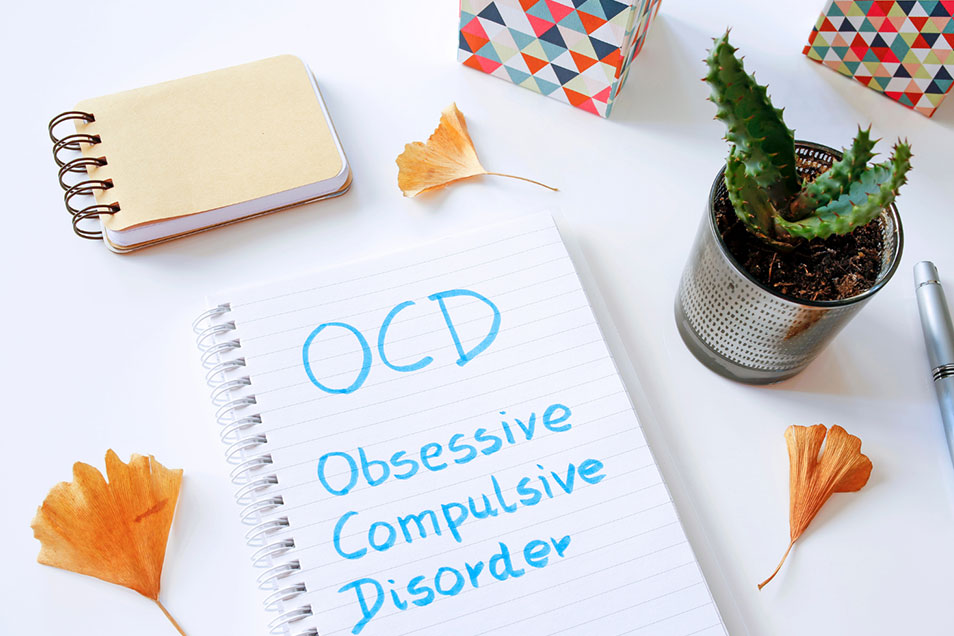How to Help Someone with OCD
International OCD awareness week started back in 2009 to share knowledge and reduce the stigma around OCD. Since then, October has encouraged mental health advocates and clinics to promote awareness and educate the public on OCD.
If your loved one has OCD, knowing how to support them can be a challenge. You may struggle to understand their experiences, where they're coming from, or feel that their symptoms get in the way of daily life.
However, your support and understanding can make a significant difference in their overall wellbeing. This post defines what OCD is and a few ways you can support and help someone with OCD.
What is OCD?
Obsessive-compulsive disorder (OCD) is characterized by recurrent unwanted and intrusive thoughts, impulses, and images (obsessions), as well as repetitive behavioral and mental rituals (compulsions).
If your loved one has OCD, you know it comes with its challenges. Family and friends can become deeply involved in their loved one's rituals. They may have to take responsibility and care for various day-to-day activities that the person with OCD cannot take on. This can cause stress and disrupt the lives of everyone involved.
People with OCD are typically aware that their obsessions and compulsions are illogical and excessive but may also feel out of control in resisting them. OCD can take up several hours in someone's day and severely affect work, study, and family and social relationships.
Here are a few ways you can help someone with OCD:
Educate yourself on the topic. Your loved one might have a hard time talking about their obsessions and compulsions. It can be helpful to acknowledge them to open up about it and support them in talking about their experience in a way that feels comfortable for them.
When you show interest in learning more about your loved one's condition, it'll be easier to not only empathize with them but also help them feel supported and understood. There are various resources available that can help you understand this disorder. This can include books, podcasts, and websites with reliable information about specific aspects of OCD.
Remember to:
- Be patient. Even if they seem unrealistic, illogical, or extreme to you, their anxieties and fears are very real to them.
- Refrain from judgment. Obsessive thoughts can often be upsetting to hear about. However, if they're uncomfortable for you to hear, it's much more difficult for the person with OCD to process them, let alone open up about them. While they know that these obsessive thoughts aren't necessarily true, it helps to have a non-judgmental person they can express these too. Make it clear that you support and love them regardless.
Understand the difference between your loved one's symptoms and personality. Saying something like, 'I know this isn't who you are, this is your OCD' can help diminish their anxiety and guilt and reduce overall stress levels.
Work out their compulsions with them. Try and work on a few alternatives together. Your approach may depend on what your loved one's symptoms look like, how they think about their compulsion, and whether or not they're receiving treatment. Here are a few suggestions to try:
- Encourage them to challenge compulsions where appropriate. For example, instead of offering reassurance, you could try and help them think about why they want to do a compulsion again.
- Seek advice. Accept that sometimes helping them with compulsive behavior isn't going to work out. Be patient and offer emotional support instead of forcing anything. If they're receiving treatment, you could speak to their doctor or therapist about the best way to manage compulsions.
Help them get access to treatment. OCD is generally not a condition that goes away on its own. However, Your loved one may find it challenging to talk to their doctor about their symptoms and seek treatment independently. Go to their appointment with them, offer hope, and support them on their journey in treatment.
Get support for yourself. Caring for someone that struggles with OCD can be stressful, making it that much more important to utilize your support system and get help when you need it.
References
https://iocdf.org/programs/ocdweek/
https://www.nami.org/About-Mental-Illness/Mental-Health-Conditions/Obsessive-compulsive-Disorder
Keywords: OCD Awareness Week, OCD help, OCD self-help, OCD support


